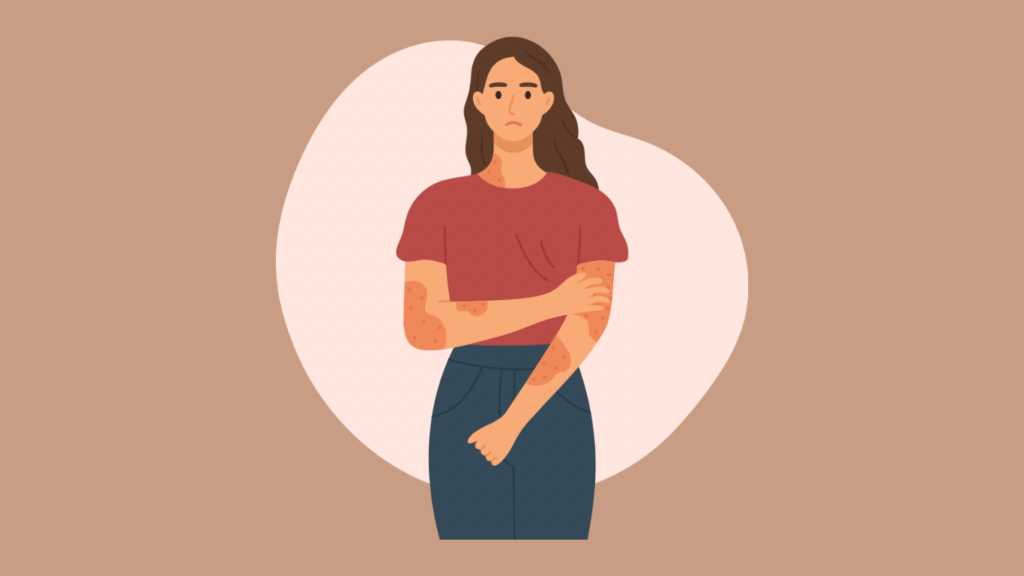Psoriasis is a chronic skin condition characterized by red, scaly patches on the skin. It affects about 2-3% of the world’s population, with men and women equally affected. The condition is not contagious and can’t be passed from person to person. In this article, we will explore the causes, symptoms, and treatment options for psoriasis.
Causes of Psoriasis:
The exact cause of psoriasis is not fully understood, but it is believed to be an autoimmune disorder. In people with psoriasis, the immune system mistakenly attacks healthy skin cells, causing them to produce new skin cells at an abnormally fast rate. These new skin cells build up on the skin’s surface, forming the characteristic red, scaly patches.
Other factors that can trigger psoriasis include:
- Stress
- Infections
- Injury to the skin, such as cuts or burns
- Certain medications, such as lithium and beta-blockers
- Cold weather
- Alcohol consumption
Symptoms of Psoriasis:
The symptoms of psoriasis can vary from person to person and can range from mild to severe. The most common symptoms include:
- Red, scaly patches on the skin, often on the elbows, knees, scalp, and lower back
- Itching or burning sensation in the affected areas
- Dry, cracked skin that may bleed
- Thickened, pitted, or ridged nails
- Joint pain or stiffness
Psoriasis can also affect other areas of the body, including the face, palms of the hands, and soles of the feet.
Treatment Options for Psoriasis:
There is no cure for psoriasis, but there are several treatment options available that can help manage the symptoms and reduce the frequency and severity of flare-ups. The most common treatment options include:
- Topical medications: These are creams, ointments, and lotions that are applied directly to the skin. They can help reduce inflammation, itching, and scaling. Some of the most commonly used topical medications include corticosteroids, vitamin D analogs, and retinoids.
- Phototherapy: This involves exposing the skin to ultraviolet light under medical supervision. Phototherapy can help slow down the growth of skin cells and reduce inflammation.
- Systemic medications: These are medications that are taken orally or injected into the body. They can help reduce inflammation and suppress the immune system. Some of the most commonly used systemic medications include methotrexate, cyclosporine, and biologics.
- Lifestyle changes: Making certain lifestyle changes can also help manage psoriasis symptoms. These may include quitting smoking, reducing alcohol consumption, and managing stress.
- Alternative therapies: Some people with psoriasis may also benefit from alternative therapies such as acupuncture, yoga, and meditation. While these therapies may not cure psoriasis, they can help reduce stress and improve overall health.
Conclusion:
Psoriasis is a chronic skin condition that can be difficult to manage, but with the right treatment, it is possible to reduce the frequency and severity of flare-ups. If you think you may have psoriasis, it’s important to see a dermatologist who can provide an accurate diagnosis and develop a treatment plan that’s right for you. By working closely with your healthcare team and making certain lifestyle changes, you can manage your psoriasis and improve your overall quality of life.
Emirates Dermatology & Cosmetology Center offers a high-quality phototherapy technology that has treated thousands of patients suffering from psoriasis. This technology is safe and non-invasive and will surely make your skin psoriasis-free.
Want to book an appointment? Call us at 02-5555-255 or message us on WhatsApp at 050 902 3583.




